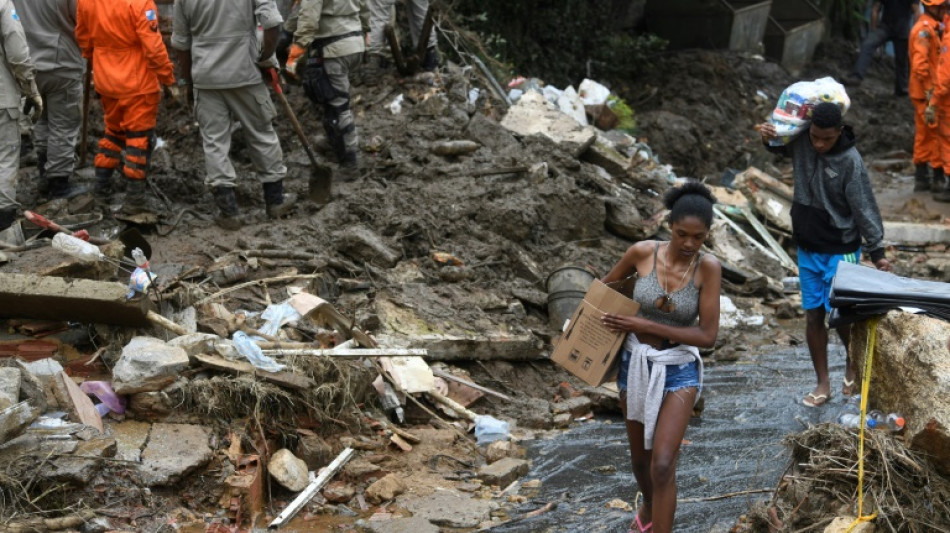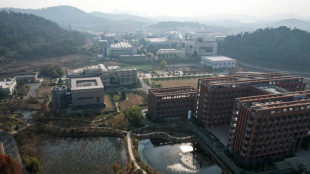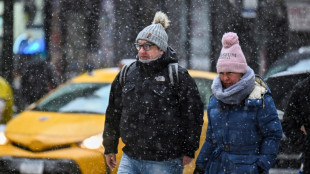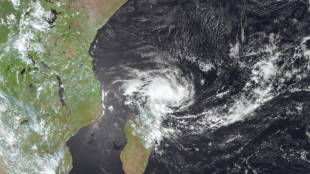
-
 Displaced Gazans head home through rubble as Israel-Hamas truce begins
Displaced Gazans head home through rubble as Israel-Hamas truce begins
-
Djokovic sets up Alcaraz clash, Sabalenka surges into Melbourne quarters

-
 Djokovic marches into Melbourne quarter-final with Alcaraz
Djokovic marches into Melbourne quarter-final with Alcaraz
-
Alcaraz wary of pressure on tennis-playing brother, 13

-
 Biden to visit Charleston church on last full day as president
Biden to visit Charleston church on last full day as president
-
Pakistan's Sajid and Abrar demolish West Indies in first Test win

-
 Zverev books Australian Open quarter-final with Paul
Zverev books Australian Open quarter-final with Paul
-
Israel says truce with Hamas begins, after delay

-
 'Ticking time bomb' as Draper retires in pain at Australian Open
'Ticking time bomb' as Draper retires in pain at Australian Open
-
Mexican authorities to seal secret tunnel on US border

-
 60 killed in Colombia guerilla violence
60 killed in Colombia guerilla violence
-
'Invincible' Gauff revels in Melbourne heat to reach quarters

-
 Indonesia's Mount Ibu erupts more than 1,000 times this month
Indonesia's Mount Ibu erupts more than 1,000 times this month
-
Sumo to stage event in Paris as part of global push

-
 Deadly strikes on Gaza after Israel says ceasefire delayed
Deadly strikes on Gaza after Israel says ceasefire delayed
-
Badosa 'loves Coco' but is gunning for 'revenge' in Melbourne quarters

-
 Sabalenka, Gauff on Melbourne collision course as Alcaraz moves on
Sabalenka, Gauff on Melbourne collision course as Alcaraz moves on
-
Alcaraz into Australian Open quarters after Draper retires

-
 Sabalenka uses fighting spirit to banish Australian Open blues
Sabalenka uses fighting spirit to banish Australian Open blues
-
Sabalenka, Gauff on Melbourne collision course after reaching quarters

-
 Swiss rider Ruegg wins opening UCI World Tour event in Australia
Swiss rider Ruegg wins opening UCI World Tour event in Australia
-
Mitchell scores 36 as Cavs bounce back, Celtics downed

-
 Sabalenka a happy snapper at Australian Open
Sabalenka a happy snapper at Australian Open
-
Gauff turns up heat on Bencic to reach Australian Open quarters

-
 Commanders stun Lions in NFL thriller, Chiefs advance
Commanders stun Lions in NFL thriller, Chiefs advance
-
Protesters storm S. Korea court after president's detention extended

-
 TikTok notifies US users of shutdown as Trump seeks last-ditch solution
TikTok notifies US users of shutdown as Trump seeks last-ditch solution
-
Ceasefire in Israel-Hamas war to begin at 0630 GMT

-
 Wuhan keen to shake off pandemic label five years on
Wuhan keen to shake off pandemic label five years on
-
Sabalenka imperious as Djokovic, Alcaraz on Melbourne collision course

-
 'Generational problem': Youth still struggling in pandemic's shadow
'Generational problem': Youth still struggling in pandemic's shadow
-
Vaccine misinformation: a lasting side effect from Covid

-
 Sabalenka blows away Andreeva to reach Melbourne quarter-finals
Sabalenka blows away Andreeva to reach Melbourne quarter-finals
-
Hope, fear at Paris rally for Gaza hostages

-
 Separated by LA wildfires, a happy reunion for some pets, owners
Separated by LA wildfires, a happy reunion for some pets, owners
-
France's Moutet 'collapsed in shower' before Australian Open match

-
 In US, teleworkers don't want to turn back
In US, teleworkers don't want to turn back
-
Covid's origins reviewed: Lab leak or natural spillover?

-
 Trump arrives in Washington ahead of Monday's inauguration
Trump arrives in Washington ahead of Monday's inauguration
-
Steady Straka takes four-shot lead in PGA Tour's American Express

-
 Kelce, Mahomes double-act leads Chiefs past Texans in NFL playoffs
Kelce, Mahomes double-act leads Chiefs past Texans in NFL playoffs
-
Barcelona's Balde complains of racist abuse in Getafe draw

-
 Frustrated Barca fail to capitalise on Atletico La Liga slip
Frustrated Barca fail to capitalise on Atletico La Liga slip
-
More Kenyan police land in Haiti to bolster security mission

-
 McGlynn leads youthful USA to friendly win over Venezuela
McGlynn leads youthful USA to friendly win over Venezuela
-
Barcelona stumble to frustrating Getafe draw in title setback

-
 Lukaku fires Napoli six points clear at Atalanta, Juve sink Milan
Lukaku fires Napoli six points clear at Atalanta, Juve sink Milan
-
Milder winds help LA firefighters as Trump vows to visit

-
 S. Korean court extends impeached president's detention, angering supporters
S. Korean court extends impeached president's detention, angering supporters
-
Wirtz has Leverkusen on Bayern's heels to keep repeat title 'dream' alive


Torrential rains in Brazil kill eight, 13 missing
Torrential rains triggered flash floods and landslides across Brazil's Rio de Janeiro state, killing at least eight people including six children and leaving 13 missing, authorities said Saturday.
The storms battered a broad swathe of the southeastern state's Atlantic coast and caused multiple landslides, including one in the colonial tourist town of Paraty that killed a mother and five of her children, officials there said.
Two more victims were killed in the cities of Mesquita and Angra dos Reis, where another 13 people remain missing, said Congressman Marcelo Freixo, who represents the state.
In Angra, the victim was a four-year-old girl buried in a landslide, while in Mesquita, 40 kilometers (25 miles) northwest of Rio de Janeiro city, a 38-year-old man was electrocuted trying to help another person escape the flooding, media reports said.
Rio state has been battered by two days of heavy rain, including fierce storms Friday night that turned streets into rivers in several cities, sweeping up cars in their path and triggering landslides -- a frequent tragedy in the rainy season, especially in poor hillside communities.
Officials in Angra said the city had received 655 millimeters (26 inches) of rain in 48 hours, "levels never before registered in the municipality."
The storms come six weeks after flash floods and landslides killed 233 people in Petropolis, also in Rio de Janeiro state.
Brazil has been swept by a series of deadly storms in recent months that experts say are being aggravated by climate change.
F.Wilson--AT




